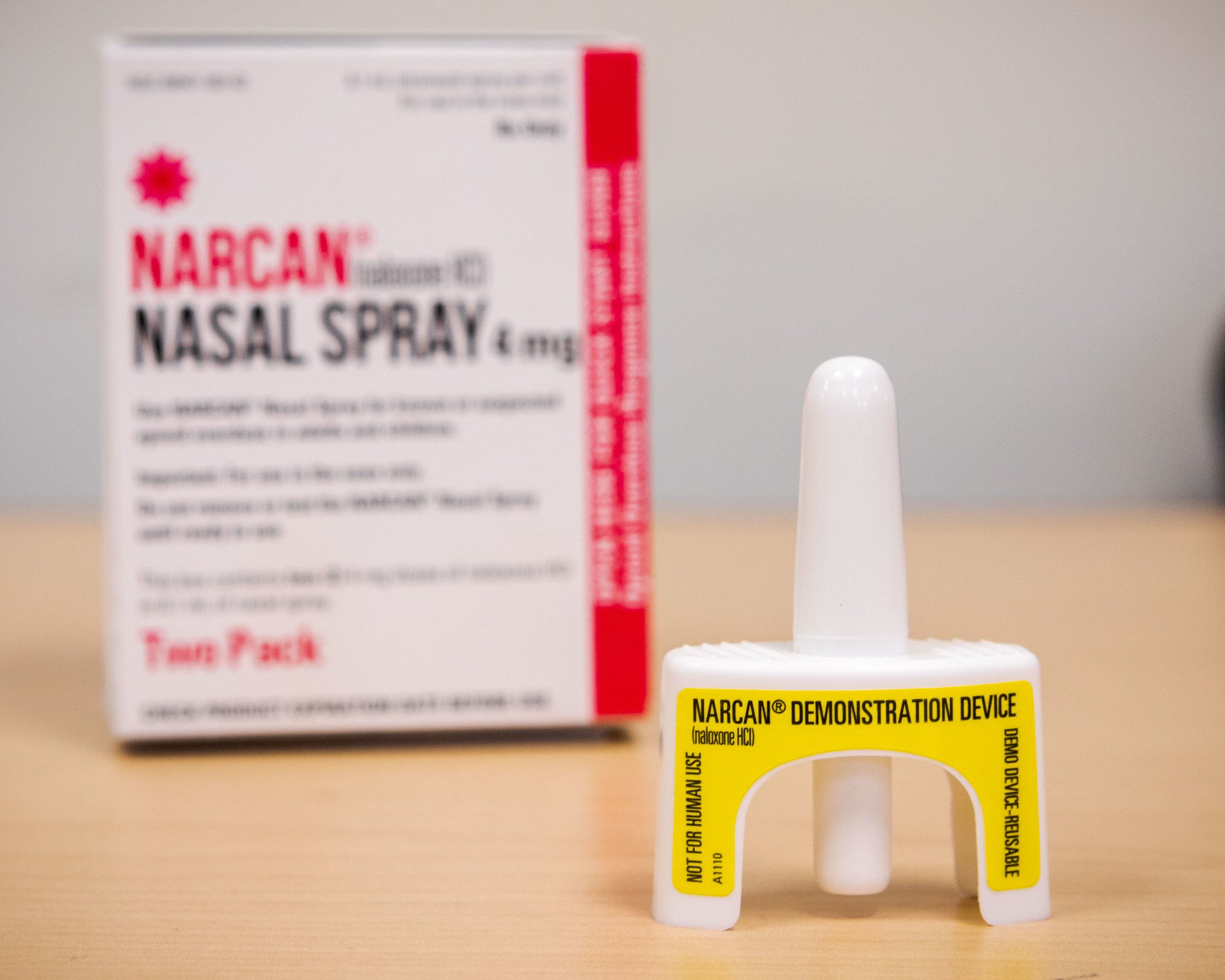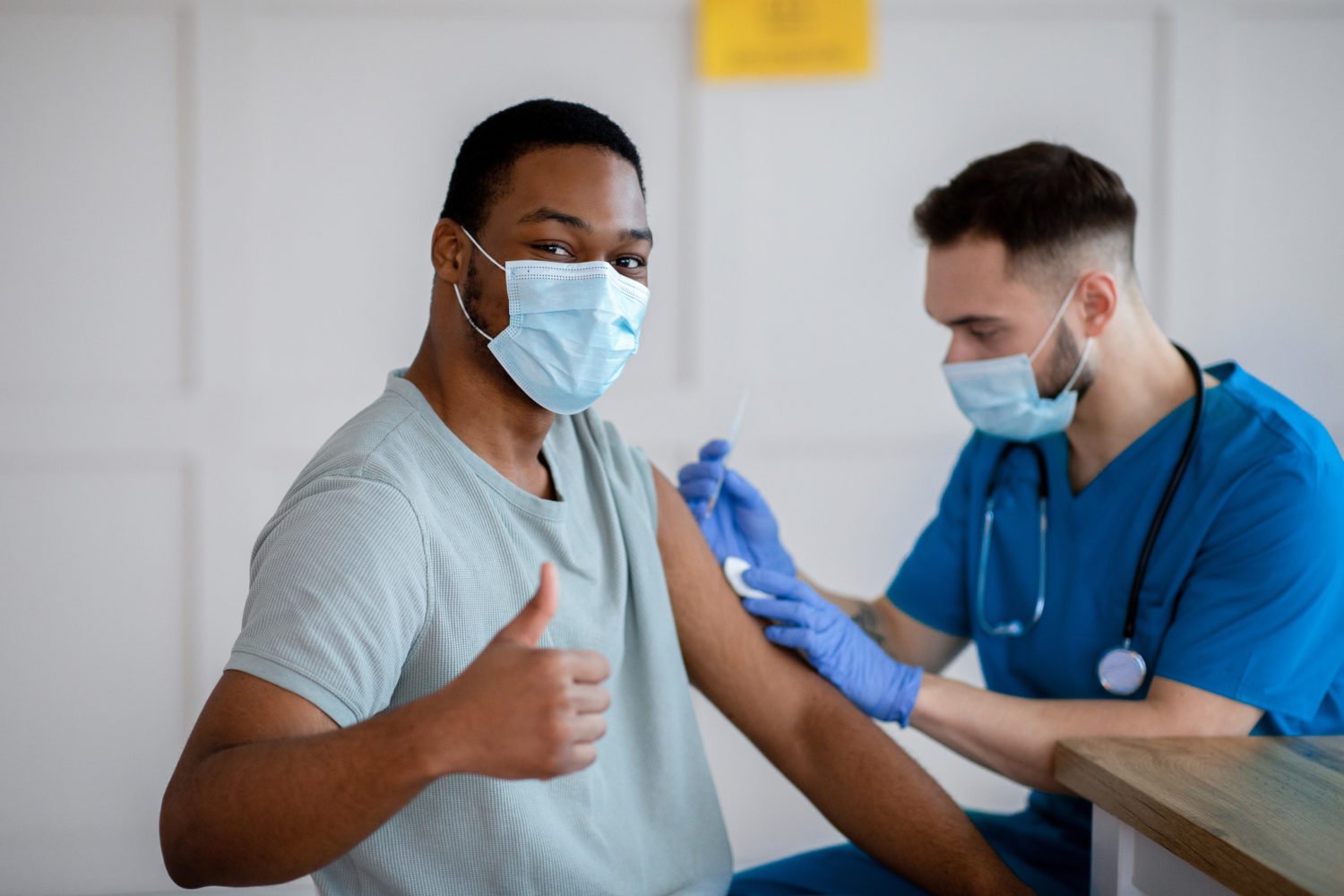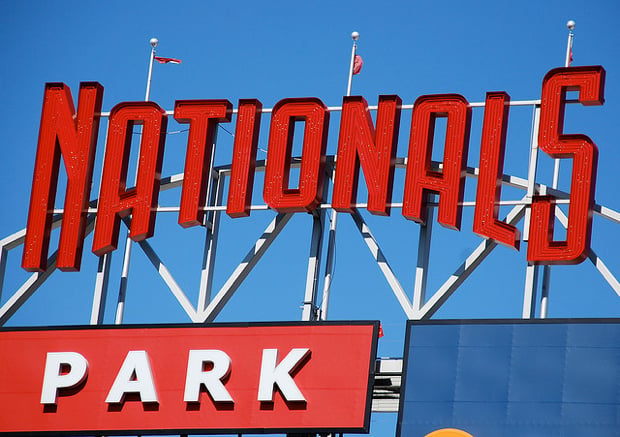On Tuesday, DC Health announced the launch of harm reduction vending machines throughout the city. The free vending machines offer Narcan, the naloxone nasal spray that can reverse opioid overdoses. The machines also have Fentanyl test strips, Covid test kits, hygiene kits, and wound-care kits.
According to the DC Office of the Chief Medical Examiner, there were 1,779 opioid overdose deaths in the District between January 2017 and May 2022. The synthetic opioid Fentanyl, which is approximately 100 times more potent than morphine and 50 times more potent than heroin, was involved in 62% of opioid overdoses in 2016—but by 2020, that share increased to 94%.
DC Health awarded grants to pilot the vending machines to Family and Medical Counseling Service (FMCS) and HIPS, a nonprofit that offers harm reduction services to sex workers and drug users. To better understand the program, Washingtonian spoke to Angela Wood, Chief Operations Officer at FMCS, and Andrea López, the Board Vice-Chair of HIPS and a professor at the Department of Anthropology at the University of Maryland:
What does “harm reduction” mean when it comes to public health?
In contrast to a “Just Say No” approach to illicit drug use based on deterrence and punishment, harm reduction is “really a comprehensive view of accepting people wherever they are on the spectrum of their substance use, and then linking them to the services that they need and educating them on how to protect themselves and their families,” Wood says.
Through a mobile unit, Wood says, FMCS provides twice-a-week harm reduction services that include distributing Narcan and Fentanyl test strips, and connecting people to primary care, substance abuse treatment, and mental health services. It also offers syringe exchanges operating five days a week.
Why vending machines, and where are they located?
Other cities such as Las Vegas and New York City have implemented harm reduction vending machines, and studies have found decreased rates of overdose deaths.
FMCS partnered with Fire and EMS to place the machines in specific locations. “Our strategy was to approach the fire department and implement through that relationship because they are in highly visible areas, we can set the machines outside,” Wood says. Fire and EMS also respond to calls of opioid overdoses: “They have a bird’s eye view of the opioid crisis in the District,” Wood says.
FMCS has placed vending machines at Engines #7, 33, and 27, all in areas with higher than average rates of overdoses and unhoused people. The other organization to receive a DC Health grant, HIPS, has placed one vending machine at Whitman Walker Health Center and has plans to add two more machines to other locations.
Andrea López, who has worked in harm reduction for over 25 years, says the vending machines can work alongside existing syringe exchanges and overdose prevention programs to reduce overdose deaths for people who are marginalized from traditional public health services.
López also says that people who use drugs are often thought of outside community. “Oftentimes, they experience criminalization that doesn’t allow them to feel safe utilizing traditional modalities of care,” she says. HIPS hopes the machine helps normalize community members caring for one another, with someone obtaining Narcan from a machine for a neighbor, friend, or family member in need.
How will the city know if the program is working?
According to Wood, FMCS will measure how much the machines are used, and cross-reference that with city overdose data to see if overdose reversals increase.
HIPS plans to collect data on who is accessing the machines, how often, and what products are most frequently used. It also plans to conduct qualitative interviews about why and when people might access the machines, how they might be preferable to another site, and how effective the location sites are.
“The best-case scenario is that this lowers people’s barriers to get access to Naloxone and other supplies,” López says. “The greater hope is that this really contributes to a comprehensive set of practices that help keep people alive and that helps continue the commitments to community care to address essentially all the different aspects that come together in the overdose crisis in DC.”
A previous version of this story stated that FMCS offers syringe exchanges two days a week; that’s incorrect, they offer services five days a week.


















